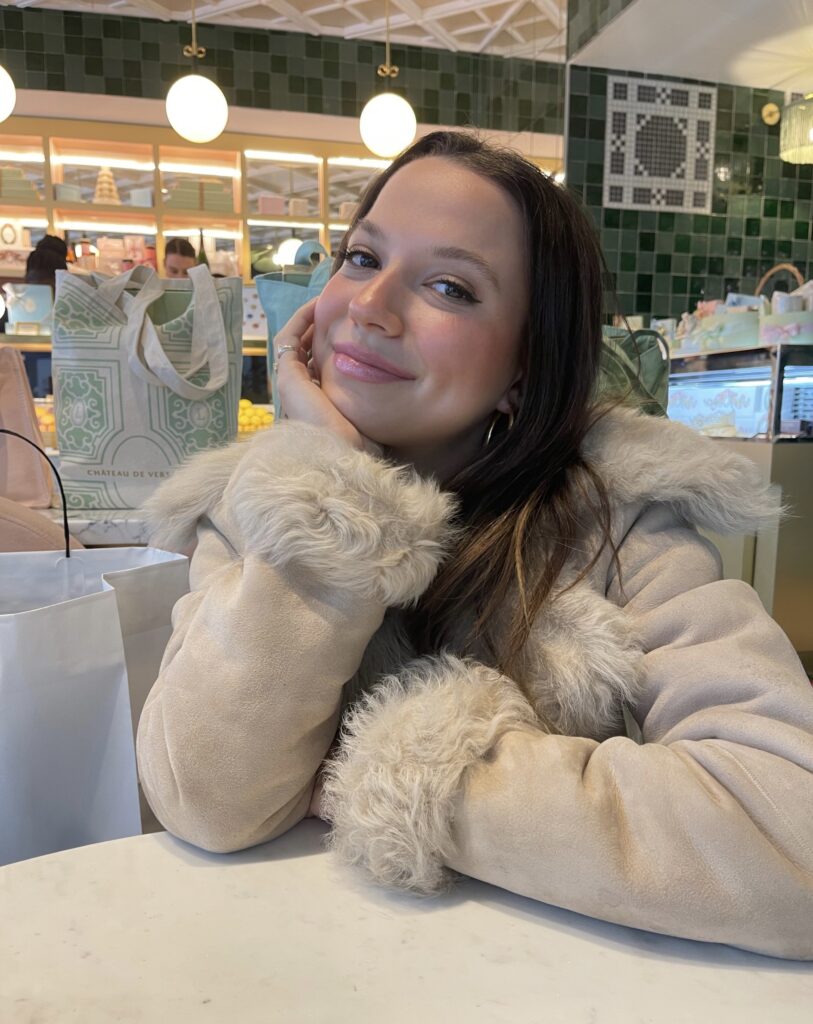Letters from Alyssa: Why Finding Gratitude is a Jewish Value

Hi Friend,
The other morning, I was doing my usual rush to grab coffee between classes (if you know me, you know I pretty much live on coffee). Before I could say anything, Maria, the barista who has been my morning lifeline for four years, was already reaching for my cup. “Oat milk latte for Alyssa?” she asked.
Suddenly, this simple interaction made me pause. In Judaism, there is a beautiful value called hakarat hatov – which literally means “recognizing the good.” It’s about actively noticing and acknowledging the blessings in our lives, from the biggest moments to the smallest interactions.
Here’s what I love about hakarat hatov – it’s not just about feeling grateful, it’s about recognizing the source of every moment of goodness. It’s about understanding that my morning coffee isn’t just about the drink. It’s about Maria, who remembers my order, and has been a small, yet integral, part of my college journey. It’s about recognizing that, even in challenging times, threads of connection and kindness weave through our daily lives.
Ahead of Thanksgiving, it’s also worth recognizing that Judaism’s conception of gratitude is much deeper than just saying thank you. When we practice hakarat hatov, we’re actually fulfilling a mitzvah, a sacred obligation to bring more holiness into the world.
Judaism teaches us to notice the good, to acknowledge it, and to never take it for granted. Whether it’s saying the shehecheyanu blessing, a blessing to mark new beginnings, lighting Shabbat candles on Friday nights, or even saying a simple blessing before we eat – our tradition gives us so many opportunities to pause and practice hakarat hatov. These moments of gratitude aren’t just rituals; they’re reminders to stop and recognize the goodness around us.
So this Thanksgiving, as we gather around tables laden with turkey (or tofurky!) and stuffing, we’re actually participating in a practice that is deeply connected to Jewish values. We’re not only celebrating an American holiday – we’re fulfilling a sacred obligation to recognize and acknowledge the good in our lives.
Here’s how I’m planning to bring more intentional gratitude into my Thanksgiving this year:
- Before the meal: Instead of the usual, quick “what are you thankful for?” roundtable, I’m going to invite my family to share a moment when someone else at the table impacted their life positively this year. It’s one thing to say I’m grateful for my family; it’s another to specifically acknowledge how we have blessed each others’ lives.
- During the meal: I’m challenging myself to practice gratitude for things we often take for granted. The farmers who grew our food, the workers who transported it, the people who stocked the grocery shelves – our Thanksgiving meals are possible because of countless individuals, many whom we’ll never meet.
- After the meal: I’m planning to write thank you notes to people who have impacted my life this year but might not know it – professors who wrote recommendations, the campus maintenance staff who always greet me with a smile, and the barista who remembers my order.
The beauty of hakarat hatov is that it’s about more than feeling grateful – it’s about expressing gratitude in ways that strengthen our connections and make goodness more visible in the world. When we acknowledge the good we receive, we become more aware of opportunities to create good for others.
So this Thanksgiving, as you pass the cranberry sauce and debate whether pumpkin or apple pie is superior (apple, obviously!), remember you’re not just participating in an American tradition. You’re engaging in the sacred Jewish practice of hakarat hatov, bringing more awareness, more connection, and more holiness into the world.
Wishing you a Thanksgiving filled with awareness of all the blessings that surround you,
Take good care,
Alyssa
Originally from Los Angeles, Alyssa Wallack is a senior at the University of Southern California. A passionate advocate for Jewish and Israel-related causes, she’s now interning with Hillel International. When not immersed in her studies or various fellowships, Alyssa loves exploring LA’s food scene and connecting with fellow students about all things Jewish.